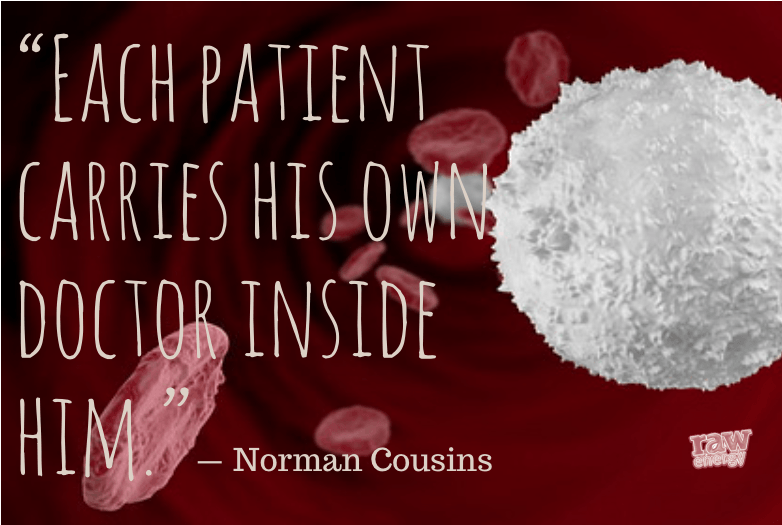I am fascinated by history. If one analyzes a situation with the long view, one can see patterns.


The past fifty years or so, science did away with nature. Butter was shunned for margarine. Dairy was fiercely de-fatted (I want my childhood years, sentenced to skim milk, back). Every minor complaint can be "fixed" with medication or surgery.
Butter is back. Fatty dairy is back (I'm making up for lost time). As for being "fixed"?
A few years ago I was seized by a violent sinus infection. I inched into an ENT's office, tears in eyes. He scribbled up, along with antibiotics, a prescription for Vicodin.
"Um, that's okay," I demurred. "I watch House."
He looked at me in scorn. "Why should you suffer if you don't have to?"
I gingerly picked up the prescription. I did not use it.
Doctors happy-pen method with opiods have led to addictions and overdoses, and now they are considerably cutting back; sufferers will have to suffer.
In general, the policy for vigilant medicine and treatment is easing off. The required annual checkup is off. Screenings and tests that were once necessary are now under the "Weeeell . . ." category. Even treatments for certain conditions or illnesses are found to be not as vital as once thought.
"Are Good Doctors Bad for Your Health?" by Ezekiel Emanuel highlights the current quo:
One of the more surprising — and genuinely scary — research papers published recently appeared in JAMA Internal Medicine. It examined 10 years of data involving tens of thousands of hospital admissions. It found that patients with acute, life-threatening cardiac conditions did better when the senior cardiologists were out of town. And this was at the best hospitals in the United States, our academic teaching hospitals. As the article concludes, high-risk patients with heart failure and cardiac arrest, hospitalized in teaching hospitals, had lower 30-day mortality when cardiologists were away from the hospital attending national cardiology meetings. And the differences were not trivial — mortality decreased by about a third for some patients when those top doctors were away.
Truly shocking and counterintuitive: Not having the country’s famous senior heart doctors caring for you might increase your chance of surviving a cardiac arrest.
He cites an Israeli study:
This is not the only recent finding that suggests that more care can produce worse health outcomes. A study from Israel of elderly patients with multiple health problems but still living in the community tried discontinuing medicines to see if patients got better. Not unusual for these types of elderly patients, on average, they were taking more than seven medications.
In a systematic, data-driven fashion, the researchers discontinued almost five drugs per patient for more than 90 percent of the patients. In only 2 percent of cases did the drugs have to be restarted. No patients had serious side effects and no patients died from stopping the drugs. Instead, almost all of the patients reported improvements in health, not to mention the saving of drug money.
And people wonder why I'm afraid of doctors.
Despite often repeating the mantra “First, do no harm,” doctors have difficulty with doing less — even nothing. We find it hard to refrain from trying another drug, blood test, imaging study or surgery.
We forget the body's capacity for healing. It doesn't always always need help. But today, with so much within human control, we forget that we don't always have all the solutions.

A new book (Hoping to Help) analyzes the effectiveness of volunteers nobly assisting in third-world countries. It's not always wonderful.
Students may take advantage of the circumstances to attempt tasks well beyond their expertise. Seasoned professionals may cling to standards of practice that are irrelevant or impossible to sustain in poor countries. Unskilled volunteers who do not speak the language may monopolize local personnel with their interpreting needs without providing much of value in return.So who did I think of?
Shadchanim.
It really is unpleasant trying to politely fend off the misplaced fervor of a bullying matchmaker who barely knows you yet insists you "must" go out with someone. Yes, they say they are "trying to help," but how is this helpful? Congratulations: My bowels clench every time I receive an e-mail or phone call from someone chirpily claiming to be a "shadchan."

2 comments:
On the science perspective, as someone who is pursuing a PhD in one of the neuroscience fields, I'd hesitantly agree with you on the overprescription situation. Doctors definitely tend to overprescribe drugs when time and/or behavioral therapy might be better instead. But I also worry about people (victims of the "Dr. Mercolas" among us) who take "no drugs" to an extreme and end up rejecting vital medications for mental health, vaccines, etc.
As for the "Why suffer?" question, that tends to be more individualized. When I have a nasty cold, I drug myself up on pseudoephedrine; when I feel a migraine coming on, I unapologetically take ibuprofen. But if someone else doesn't want optional medications, that's their literal headache to deal with.
The man wanted me to take an opiod, not Advil.
I wasn't advocating no medications (I throw proverbial eggs at the anti-vacc). My point was about overprescribing, and how there are times when the body can be/should be left to heal on its own, because not everything, not always, can be fixed.
Post a Comment